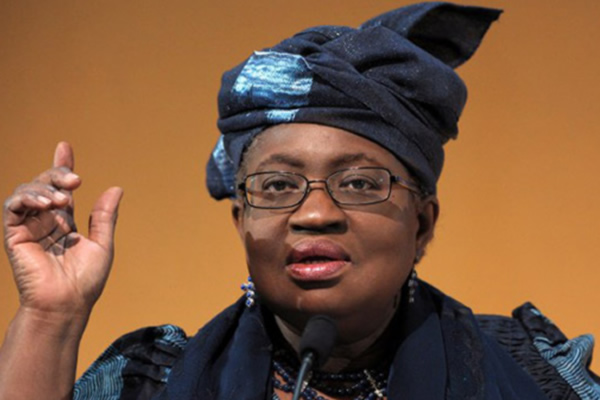Ngozi Okonjo-Iweala, the Director-General of the World Trade Organization, has stated that a move away from open trade will result in increased price volatility, inflationary pressures, and weakened growth prospects.
At the most recent Jackson Hole Economic Policy Symposium, which was held at the Federal Reserve Bank of Kansas City in the United States, she made this statement.
The director-general of the WTO stated that predictable commerce was a source of disinflationary pressure, decreased volatility, and increased economic resilience, whereas fragmenting trade into competing blocs “would be highly costly.”
“A society that rejects predictable and open trade would be one characterised by lessened competitive forces and increased price volatility,” said Okonjo-Iweala.
“It would be a world with weaker prospects for growth and development, a slower shift to a low-carbon economy, and more supply vulnerability in the event of unforeseen shocks.”
She pointed out that widespread sustained inflation had returned in the developed world, and that subsequent monetary tightening had made debt distress and financial instability worse for numerous emerging economies.
She claims that some officials have come to the conclusion that globalization needs to be halted after considering these shocks and escalating geopolitical tensions.
She continued by stating that according to WTO economists, if the world economy splits into two independent trading blocs, real global GDP will decline by at least 5% over the long term, with some developing economies seeing double-digit welfare losses.
“Despite all the conflicts and skepticism surrounding trade, overall trade costs for manufactured goods, services, and agricultural products have decreased by 12% over the previous 20 years, with rising digitalization and trade in services possibly becoming a strong disinflationary force.
“Falling trade costs for products, and particularly for services, indicate that globalization may still be an engine for improved growth, efficiency, and economic possibilities, while also contributing to price moderation,” the WTO director-general said.
According to Okonjo-Iweala, initiatives like the agreement on Services Domestic Regulation, signed by WTO members and accounting for over 90% of global services trade, and the ongoing discussions on electronic commerce being negotiated among 90 WTO members could become a potent disinflationary force.
She suggested that in order to take advantage of those prospects, there needed to be clear, predictable, and open international markets centered in a robust multilateral trading system with solid standards.

